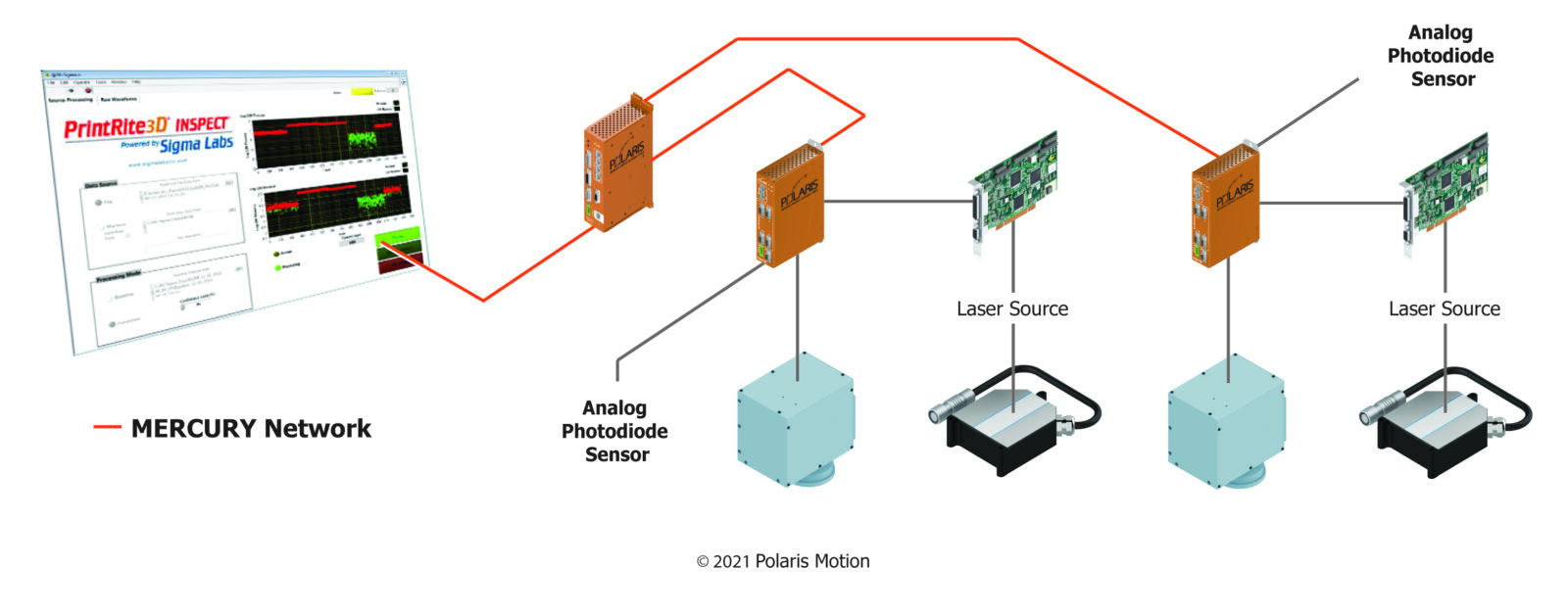How In Process Quality Assurance (IPQA™) is Driving Global Large Scale Adoption of Metal Additive Manufacturing
Imagine if you could shorten the production cycle for complex parts in industries like Aerospace and advanced manufacturing. Further imagine that instead of producing them locally you could send CAD files from a central office to remote production facilities in any global location.
Take that two steps further and imagine you could monitor production quality “in-situ” through in process quality assurance (IPQA) and then enhance the whole system through automated post processing.
This futuristic picture of rapid production could radically change entire industries. Manufacturing, QA and post processing methodologies for complex parts that once took months could be shortened to days.

Darren Beckett, CTO of Sigma Labs is perhaps the expert on IPQA and this is exactly the future he is witnessing unfold right now. Looking ahead, he paints a picture of the fourth industrial revolution and innovation that defies the imagination.
The ultimate goal is for Sigma Labs’ IPQA system to open up an industry with unlimited design parameters that allows global collaboration.
Currently, Darren and Sigma Labs are making rapid progress in advancing the technology and quality that will make this possible.
Technology
IPQA represents a new innovative technology that is used to monitor metal additive processes, otherwise known as 3D metal printing. It is needed because the emerging metal additive manufacturing (AM) industry simply can’t be accepted as a trusted technology without safeguards in place to ensure quality.
“Imagine technology where the forge is moving around with a laser in real-time. That represents a whole lot of complexities,” says Beckett. One challenge with Sigma Labs’ IPQA is that it needs to sample at 200 kHz specifically to look at high temperature or relative temperature to comprehend what is happening in the melt pool.
Fortunately, Sigma Labs has been able to overcome this 200kHz sampling challenge: “We’ve accomplished it with Polaris Motion. We have been able to advance and open up other architectures, other machine species that we would not otherwise be able to access had it not been for their experience and helping us with our data acquisition,” says Beckett.

Quality

Questions of quality are another reason the large-scale adoption of metal additive manufacturing processes has not yet happened. Current quality control includes destructive testing and CT scanning. Both techniques are time consuming and costly, and they don’t provide a path toward in-process monitoring or the chance for in-process repair.
What’s more, the current quality practices occur after the part is made and has been removed from the 3D printing machine, adding significant additional steps, cost and time. IPQA allows for adjustments and fixes to occur right during the build process, long before post-production QA would even start.
Beckett explains that in metal additive manufacturing, thermal data can be fed back into simulation models to inform how to make better parts. This also extends to any stock of parts. Spare parts must be kept in warehouses on inventory, which has a huge cost of ownership associated with it. With enough trust in the quality of this new process, these parts can be printed on demand and made with an in-situ process monitoring technology.
The promise that these monitoring and QA technologies hold is leading to a number of innovative solutions. One such solution is the Polaris UniverseOne™ synchronous data acquisition system, which is an integral component to Sigma Labs’ IPQA solution.
Beckett adds that Polaris’ signal quality is a big deal. “Our tech does not work properly without a good signal to noise ratio. Polaris have that down. I see the quality, our customers see the quality, and they are constantly wowed about it.”
“Our goal is to be the de facto third-party standard for IPQA,” says Beckett. “As we set out to achieve this task, we knew we needed a partner in data acquisition. Polaris Motion has the know-how to supply the technology we needed.”
As Tom Erlic, co-founder of Polaris Motion puts it, “It’s been very exciting and humbling for us to partner with Sigma Labs to help enable their technology. Seeing how the technology is helping break down limitations to the additive manufacturing process really pushes us to keep pushing the envelope.”
What’s Next
There’s no denying the promise of this technology but fostering trust requires people to become users of the processes. More and more institutions are adopting AM. New investors are also coming into the market. They will fund the advancement of AM and design. A new generation of engineers is also about to arrive who are excited to move to additive design principles.
Says Beckett, “We know where we want to go but can’t go there fast enough. You have to wait until people are ready to accept that next step.”
He notes that his relationship with Polaris has helped with Sigma Labs’ transition. “What I like with Polaris is that we are already thinking about what infrastructure needs to be for that next step.”
“It’s exciting to provide tech that moves things forward and helps keep Sigma Labs at the forefront,” says president of Polaris Motion, Mile Erlic.
Beckett is realistic about the industry and understands the process will take some time before being trusted for mission critical applications where people’s lives depend on the parts produced.
That said the future is coming. Algorithms, technology, and processes are meaningless without good data. “Historically this has been the one thing holding us back.” But, he says, “Polaris delivers.”
Interested in IPQA and want to discuss how it affects your business? Don’t hesitate to send us a a question!

